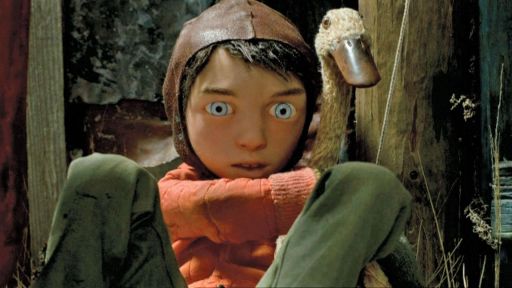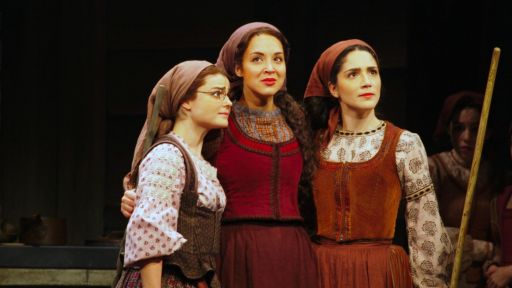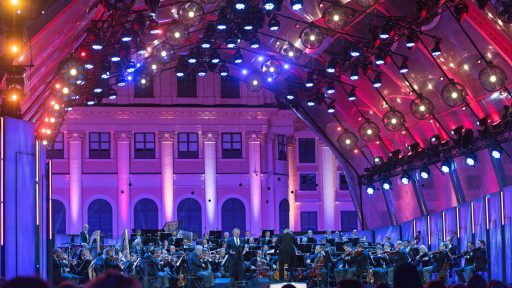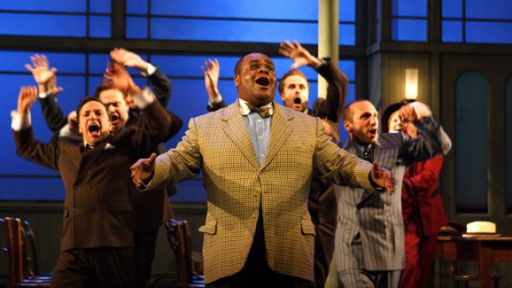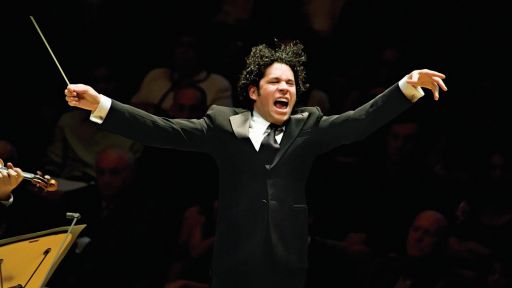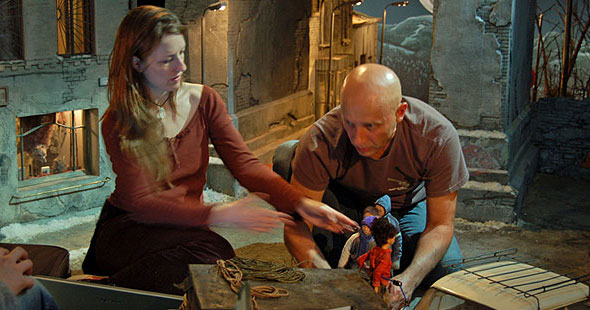
Breakthru Films
Sergei Prokofiev’s “Peter and the Wolf” has inspired an Oscar®-winning short film of extraordinary imagination written and directed by British animator Suzie Templeton. In a masterful use of stop-frame technique and lifelike models, the film offers a fresh take on the classic tale, set to Prokofiev’s colorful score from 1936. Templeton, 40, spoke to GREAT PERFORMANCES Online about the five-year effort to bring this updated “Peter & the Wolf” to the screen.
GREAT PERFORMANCES: How did the initial idea for making this film come about?
SUZIE TEMPLETON: The producer [Hugh Welchman] and Mark Stephenson, the conductor, had the idea between them to do a film of “Peter and the Wolf” and they asked me to make it. I hadn’t listened to the Prokofiev piece since I was a child, but I had very strong feelings about it then, and those very strong feelings came right back when they suggested it.
GP: Instead of a very folksy, once-upon-a-time approach, you have created a present-day and sometimes spooky Russian world for Peter. How did your interpretation of the story take shape?
ST: Most of it developed organically. Several options were kicking around about where to set the story. I didn’t want it to be insipid in any way. I wanted it to feel timeless, but also to feel contemporary and talk about things that are relevant to us today. I think we achieved that. I went to Russia twice to do some research for the film. I took thousands of photos. I talked to children and old people.
GP: People who know the story from hearing Prokofiev’s original text recited at concerts and on recordings will notice a few minor differences.
ST: I knew at the start that I wanted Peter to have an intensity and darkness about him. And I knew I wanted him to let the Wolf go free at the end.
GP: In addition to the Wolf’s fate, there’s the question of the Duck. In the original, the poor thing is swallowed whole by the Wolf and is still heard inside him at the end. That postingestion element isn’t in the film.
ST: I did consider it. But I couldn’t find a way to have the Duck in the Wolf’s stomach, which is something I still remember being affected by as a child when I first heard the piece. I couldn’t show that without completely changing the style of the film. It was a not a happy situation for me.
GP: In your film, Peter is pretty much confined to a gloomy, run-down compound with his grandfather, a place that conveys a lot of fears. The nearby town Peter goes to isn’t much better; it presents an unflattering view of Russian society, very much an economically deprived spot with what look like young paramilitary thugs. It’s a very striking image. Have you heard any complaints from Russians who have seen the film?
ST: I know of maybe 10 Russians who have seen it, and I was really happy with their response. Two or three said they couldn’t believe a non-Russian had made the film. That was a really great feeling for me. I wanted it to feel Russian, and they said that’s what it felt like. But one Ukrainian told me I had robbed him of his childhood vision of the piece. So many people have a vision of “Peter and the Wolf” in their heads, a vision of what it meant to them when they were a child, and they don’t want it changed.
GP: What is your vision for this story? The original text doesn’t necessarily seem full of symbols or lessons, but your film, even though there are no words at all, seems to convey lots of different layers of meaning. Are there specific messages you want viewers to think about?
ST: It is a primal story of a boy and a wolf. But [Prokofiev’s] text is quite short, actually. To read it, what does it take, three minutes? I had to create all the rest. That gave me a tremendous scope to determine what the music meant to me and what I wanted it to mean. All sorts of interpretations are possible. I do have many subtexts in there, but I would prefer not to talk about them. I’d rather leave that to others to decide.
GP: How difficult was it to find backing for the film?
ST: It’s really hard to raise money for a short film, and this one had a very high budget. The producers worked incredibly hard to get the money. It was a very, very hard sell. It took three years to raise the money. I was mostly shielded from that trauma, and I was busy all of that time anyway working on the project. I didn’t have to go in person to make the pitch to investors, so I was very lucky in that respect. What I was required to come up with were nice pictures and storyboards that the producers could show to give people an idea of what the film would be like.
GP: Was the actual filming fun?
ST: I wouldn’t say it was fun. No, it wasn’t fun at all. But it was definitely interesting, definitely intense — brilliant and terrible at the same time. We were under incredible pressure, all of us, all of the time. It is a dreadful pressure in a form that is so meticulous. You can’t make mistakes. But there is a great joy in making good work and making work at this level with these people.
GP: In regular filmmaking, directors look at rushes, all the footage from each day’s work. In stop-frame animation filming, do you still get rushes?
ST: Yes, but they’re quite short (laughter). You only get two or three shots a day. I would put the rushes into my computer each day in a time line with the music, to make sure it worked.
GP: Could you change things as you went along, come up with different ideas about a shot?
ST: We were on so tight a schedule it was very difficult to change anything. I could tweak small things, ad lib a little bit. But the camera angles, the shot lengths, the sets — they were all set, so we were very much constrained.
GP: After working on this project for five years, can you stand to hear the music of “Peter and the Wolf” anymore?
ST: I listened to it literally thousands of times, repeating little phrases over and over and over again as I was writing and drawing scenes. But after all of that, I am still enjoying it. I think I never became deaf to it, you know, the way you can hear something so often that you don’t actually hear the notes. That didn’t happen. It’s amazing.
GP: How has the postfilming experience been for you?
ST: The reaction was better than we could have ever hoped for, so it will be easier from now on to make more films. But it has been very tough for the producers to get distribution, because it’s a short film and people don’t know what to do with a short film. Going to the Oscars was crazy. I have never been to anything like that, but it was great fun.
GP: Have you settled on your next project?
ST: I am considering several things. I’d like to make a feature story with stop-motion.
Interview by Tim Smith for GREAT PERFORMANCES Online conducted in March 2008.


